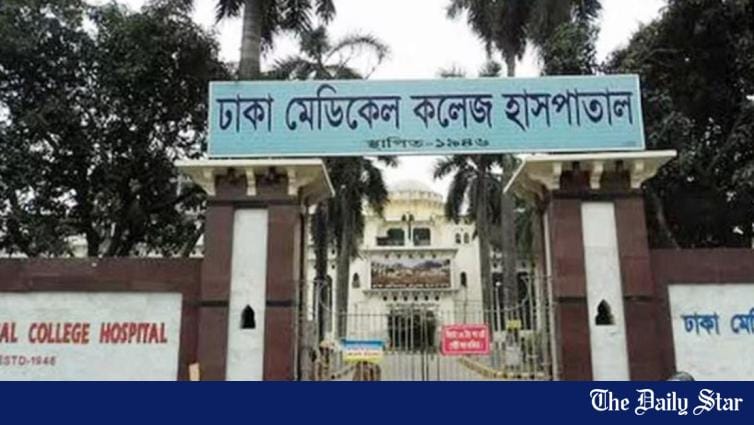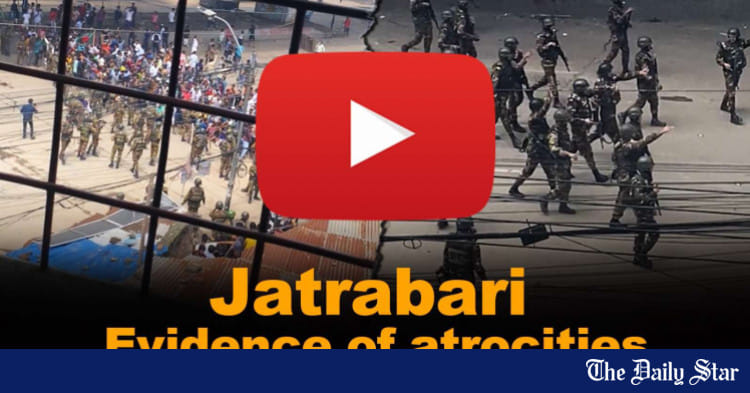Saif
Senior Member
- Messages
- 17,408
- Likes
- 8,373
- Nation

- Residence

- Axis Group


July Uprising: Six bodies of martyrs found in DMCH morgue
Six bodies of martyrs from the July uprising have been found in the forensic department of Dhaka Medical College Hospital.
July Uprising: Six bodies of martyrs found in DMCH morgue

Photo: Collected
Six bodies of martyrs from the July uprising have been found in the forensic department of Dhaka Medical College Hospital.
The special cell for the July uprising at DMCH revealed this during a press conference yesterday, reports UNB.
The identities of the bodies are as follows -- an unidentified male aged around 20, an unidentified male aged around 25, an unidentified male of around 22, an unidentified male of around 30, an unidentified female of around 32, and Enamul, 25.
The forensic team has completed autopsies and collected DNA samples. Reports indicate that five individuals died from injuries, while Enamul succumbed to a fall from a height, according to the cell's secretary Hasan Inam.
"We discovered that six unidentified bodies from the uprising were at Dhaka Medical College Hospital. This morning [yesterday], our team visited Shahbagh Police Station to gather detailed information. Officer-in-charge Khalid Mansur confirmed that six bodies were in the morgue, and these bodies belong to the protesters of the uprising," he said.
"However, the police have not clarified when the bodies were brought here," he added.
The special cell urged anyone missing a person of the mentioned ages to contact them at this number -- 01621324187.
Contacted, Shahbagh OC Khalid Mansur said the bodies haven't been handed over to Anjuman Mufidul Islam yet, as people continue to come and check the bodies daily. A committee, to be formed under the DMP Commissioner's guidance, will decide further actions regarding the bodies.
Photo: Collected
Six bodies of martyrs from the July uprising have been found in the forensic department of Dhaka Medical College Hospital.
The special cell for the July uprising at DMCH revealed this during a press conference yesterday, reports UNB.
The identities of the bodies are as follows -- an unidentified male aged around 20, an unidentified male aged around 25, an unidentified male of around 22, an unidentified male of around 30, an unidentified female of around 32, and Enamul, 25.
The forensic team has completed autopsies and collected DNA samples. Reports indicate that five individuals died from injuries, while Enamul succumbed to a fall from a height, according to the cell's secretary Hasan Inam.
"We discovered that six unidentified bodies from the uprising were at Dhaka Medical College Hospital. This morning [yesterday], our team visited Shahbagh Police Station to gather detailed information. Officer-in-charge Khalid Mansur confirmed that six bodies were in the morgue, and these bodies belong to the protesters of the uprising," he said.
"However, the police have not clarified when the bodies were brought here," he added.
The special cell urged anyone missing a person of the mentioned ages to contact them at this number -- 01621324187.
Contacted, Shahbagh OC Khalid Mansur said the bodies haven't been handed over to Anjuman Mufidul Islam yet, as people continue to come and check the bodies daily. A committee, to be formed under the DMP Commissioner's guidance, will decide further actions regarding the bodies.







